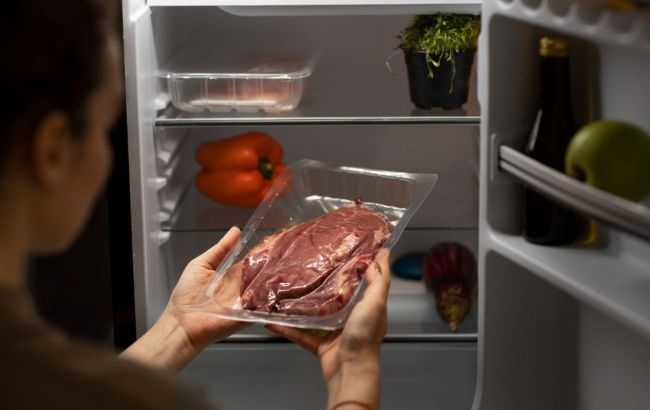15 foods you should never put in freezer
 What foods should never be put in the freezer (illustrative photo: Freepik)
What foods should never be put in the freezer (illustrative photo: Freepik)
Freezing is a convenient way to extend the shelf life of food. However, not all foods are suitable for freezing. Some of them lose their texture, flake, or become inedible after defrosting.
Milk and cream-based sauces
Although freezing milk or cream may seem like a good way to extend its shelf life, these products tend to flake when thawed, taking on a grainy, watery texture. The same thing happens with soups and sauces that contain cream.
Leafy greens for fresh salads
Leafy greens such as lettuce, spinach, and kale do not retain their original texture after freezing and thawing due to their high water content.
This means that it is not recommended to freeze lettuce and other leafy greens for use in fresh salads.
However, according to gardener and food writer Julie Martens Forney, it is okay to freeze greens if they are to be used in soups and smoothies.
Cooked pasta
Freezing cooked pasta often results in sticky, mushy pasta when reheated. If you are preparing meals in advance, it is better to freeze the sauce separately and cook fresh pasta as needed.
If freezing is the only option, cook the pasta al dente and add a little oil for storage, as Tiffany, founder of the grocery budgeting site Don't Waste the Crumbs, advises.
Raw potatoes
Like leafy greens, raw potatoes do not tolerate freezing well due to their high water content and become mushy and grainy when thawed. Store raw potatoes in a cool, dry place away from direct sunlight for long-term storage.
Eggs in the shell
Freezing whole eggs in their shells causes the liquid inside to expand, which can cause the shell to crack and spoil the egg.
To freeze eggs safely, it is recommended to beat them together and store them in an airtight container or freeze them in separate portions using an ice cube tray.
Fried foods
After freezing and reheating, fried foods lose their characteristic crispy texture and often become soft and soggy. It is better to store leftovers in the refrigerator and then reheat them in the oven or deep fryer to restore the crispy crust,
Soft cheeses
Soft cheeses, such as cream cheese, ricotta, and goat cheese, do not freeze well and tend to flake or become grainy after thawing.
Hard cheeses such as cheddar, parmesan, and gouda, on the other hand, are better suited for freezing and can be grated and stored for later use.
Salads with mayonnaise
Salads and other dishes made with mayonnaise do not freeze well because the mayonnaise separates during the defrosting process. According to food writer Lauren David, this results in a watery, unappetizing texture.
Fresh herbs
Herbs such as basil, cilantro, and parsley lose their flavor and texture if stored as is. Instead, culinary consultants advise chopping the herbs and freezing them in ice cube trays with olive oil. These herb cubes can then be added to soups and sauces.
Cucumbers
Due to their high water content, cucumbers become mushy and slippery after freezing. It is best to keep them fresh in the refrigerator for salads and snacks.
Yogurt
Although you can technically eat thawed yogurt (and it will retain its nutritional and probiotic properties), it separates when frozen. This means it will likely have a more watery, grainy texture.
Whole avocados
Whole avocados turn brown and mushy after defrosting. For storage in the freezer, it is recommended to cut the avocado into slices or cubes and close it in an airtight container with lemon or lime juice.
Watery fruits
Fruits with a high water content, such as watermelon and citrus fruits, become mushy and lose their texture after defrosting.
Tomatoes
Freezing raw tomatoes will cause them to become soft and watery when thawed, making them unsuitable for salads or fresh dishes. However, you can safely freeze them for use in soups and sauces.
Coffee beans
This may come as a surprise to many, but freezing coffee beans can degrade their flavor as moisture affects their natural oils and coffee beans absorb odors from the freezer.
Instead, store them in an airtight container in a cool, dark place for optimal freshness.
Read also how to keep a cut avocado for a week.
This material is for informational purposes only and should not be used for medical diagnosis or self-treatment. Our goal is to provide readers with accurate information about symptoms, causes, and methods of detecting diseases. RBС-Ukraine is not responsible for any diagnoses that readers may make based on materials from the resource. We do not recommend self-treatment and advise consulting a doctor in case of any health concerns.

